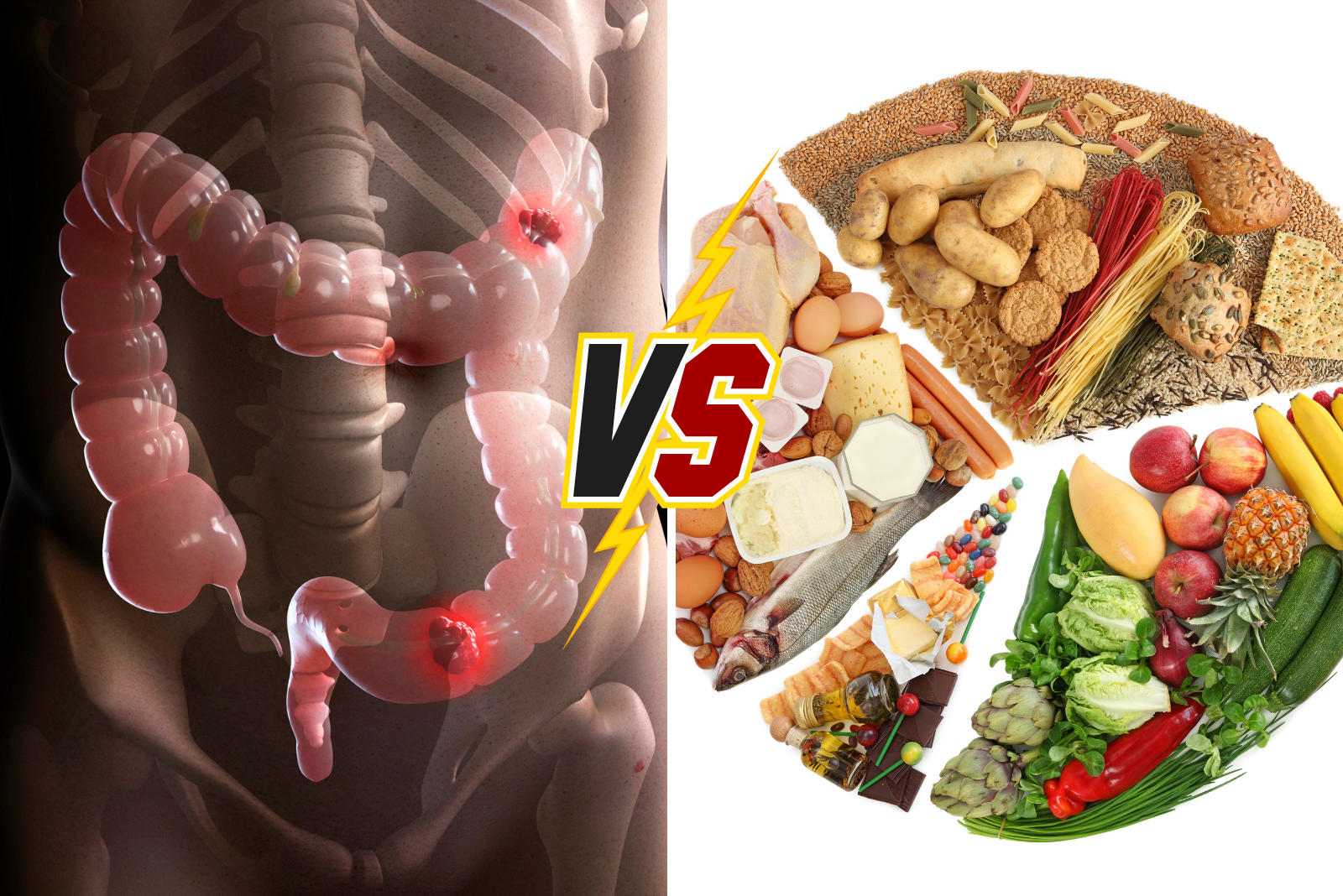IBS or Food Sensitivity? Understanding the Difference and When to See a Doctor
By Admin | 2023-10-16
The symptoms are often identical: cramping, bloating, diarrhea, or constipation. When you experience these digestive upsets, it’s natural to blame the last thing you ate. But is your discomfort caused by a passing food sensitivity or a chronic underlying condition like Irritable Bowel Syndrome (IBS)?
Distinguishing between IBS or food sensitivity is one of the biggest challenges patients face. Both conditions are highly common, and both are fundamentally linked to diet. Yet, their underlying mechanisms and long-term treatments are drastically different. Misdiagnosing yourself can lead to unnecessary, restrictive diets and prolonged suffering.
At KAGE - KIMS Advanced Gastroenterology & Endoscopy in Hyderabad, we specialize in cutting through the confusion to provide a definitive diagnosis. Our expert gastroenterologists utilize structured testing and elimination trials to determine whether you need dietary counseling or medical management. This guide will clarify the crucial differences and tell you exactly when to see a doctor for your digestive distress.
Defining the Key Differences: Sensitivity vs. Syndrome
A food sensitivity affects the digestive system; IBS affects the entire body-gut communication system. This distinction is vital for treatment.
| Condition | Primary Mechanism | Symptoms | Duration of Symptoms |
|---|---|---|---|
| Food Sensitivity/Intolerance | Lack of an enzyme (e.g., lactase) or chemical reaction to food additives. | Gas, bloating, diarrhea, nausea (localized). | Symptoms subside once the food is fully digested. |
| Irritable Bowel Syndrome (IBS) | A chronic disorder of gut-brain signaling (functional GI disorder). | Abdominal pain + altered bowel habits (constipation, diarrhea, or mixed). | Chronic, lasting months or years, often triggered by stress, hormones, or food. |
The Hallmarks of IBS: It’s More Than Just Pain
While many people experience food sensitivities, to qualify as IBS, a patient must meet specific clinical criteria. The defining feature of IBS is chronic, recurring abdominal pain that is associated with a change in the frequency or form of your stool.
Key characteristics that strongly suggest IBS over a simple food sensitivity include:
- Pain is the Central Feature: The primary complaint is not just gas or bloating, but pain that is relieved by a bowel movement.
- Long-Term Consistency: Symptoms persist for at least three months, with onset at least six months prior to diagnosis.
- Chronic Altered Bowel Habits: The condition involves a pattern of frequent diarrhea (IBS-D), frequent constipation (IBS-C), or alternating between both (IBS-M).
IBS is a diagnosis of exclusion—we must rule out other causes before assigning the IBS label.
The Challenge of Food Triggers in IBS
Approximately 85% of IBS patients report that certain foods trigger or worsen their symptoms. This overlap is why patients confuse IBS or food sensitivity.
In IBS, the gut is hypersensitive. Foods that are normally fine can cause discomfort simply because the gut reacts strongly to the fermentation process. The two most common food-related areas for IBS patients are:
- FODMAPs: As discussed previously, these highly fermentable carbohydrates are poorly absorbed and cause gas and bloating in sensitive IBS patients.
- Lactose/Gluten: True Celiac Disease (an autoimmune disorder) must be ruled out, but many IBS patients find relief on a gluten-free or low-lactose diet because these ingredients are high-FODMAP.
How KAGE Distinguishes Between the Two: The Diagnostic Path
Our gastroenterologists in Hyderabad follow a clear, two-step process to correctly differentiate IBS or food sensitivity:
- Rule Out Structural Disease (The Organic Check): The first step is to ensure your symptoms are not caused by an organic disease like Crohn’s disease, Ulcerative Colitis (IBD), or Celiac disease. This may involve blood tests, stool samples, or an endoscopy. You cannot be diagnosed with IBS if you have IBD.
- Structured Elimination Trials: If organic disease is ruled out, we move to identifying functional triggers. The most effective method is a closely monitored Low-FODMAP elimination and reintroduction diet, often guided by our in-house nutritionists. This is far more reliable than generic online food sensitivity tests.
When to See a Doctor for Digestive Issues
If you are self-treating or still debating IBS or food sensitivity, it is crucial to seek professional help if you experience any of the following "Red Flag" symptoms:
- Unexplained Weight Loss.
- Blood in the Stool (or black, tarry stool).
- Symptoms that consistently wake you from sleep.
- Onset of severe symptoms after the age of 50.
- Unexplained Iron Deficiency or Anemia.
These are serious indicators that require immediate medical investigation, as they are not typical for IBS or simple food sensitivity.
Long-Term Management: From Pills to Personalized Plans
For true food sensitivities (like lactose intolerance), treatment is clear: avoidance or enzyme supplementation. For IBS, management is holistic and often multi-faceted:
- Dietary Management: Personalized low-FODMAP diet plans designed by our specialists.
- Medication: Prescription medications to manage diarrhea, constipation, or gut pain.
- Gut-Brain Therapies: Addressing the psychological component through stress management, cognitive behavioral therapy, or gut-directed hypnotherapy.
Conclusion & CTA
Trying to navigate the world of digestive discomfort alone is frustrating and often fruitless. The similarity between IBS or food sensitivity makes accurate self-diagnosis nearly impossible. Your path to relief begins with a definitive diagnosis.
At KAGE - KIMS Advanced Gastroenterology & Endoscopy in Hyderabad, we are ready to identify the root cause of your chronic symptoms and design a personalized treatment plan that restores your digestive comfort.
Stop guessing what's on your plate. Call KAGE today to schedule your digestive consultation.

